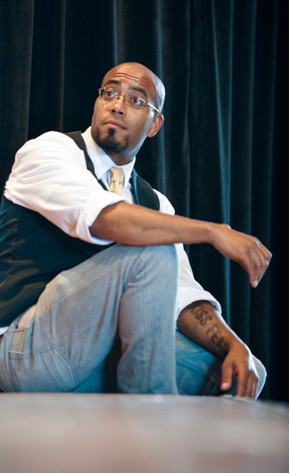We all want to be the hero in our stories. And often we believe that we are. Wrong that is done to us has been done by bad/evil people. If we hurt someone, it was simply a mistake; we aren’t really that “kind” of person. Politicians and celebrities make these types of confessions all the time and they mean absolutely nothing because we are all guilty of the same sin. A lack of self-reflection. An unwillingness towards accountability. We don’t want to admit that in other people’s stories, we can be and are the villain. That is a hard pill to swallow.

America, like all colonizing nations, has a brutally ugly history that we (and by we I mean the people in power) repainted to get the blood off our hands. Thanksgiving was full of smallpox. Martin Luther King Jr., whom we now recognize as a hero, was considered an enemy of the state and was arrested 29 times during the Civil Rights Movement. The 400 years of Slavery that built the financial empire of the USA is being re-written as immigration. Well, the problem with America’s story is that it’s always being told by the same narrator. The one who won. It’s always HIS story and he gets to spin it however he likes. Gets to paint anyone that doesn’t look like him as the enemy, as the villain, as in the way of HIS destiny.
Braggsville is a book that does the exact opposite of what most of us do when tensions around race and history arise. We avoid, we make excuses, we turn away. We try to make light of it. The book runs towards it. T. Geronimo Johnson makes us run towards it with widespread greeting arms. He, a black man in contemporary America, knows well the history and chooses to give us the traditional leading man. A white man. The one who’s usually telling us HIS story. But this is no accident. Johnson planned out this story so well because we need new ones, or rather we need the old ones re-told. They say in literature that there are no more new stories, and I both agree and disagree. The stories at the center have all been told before, but we haven’t heard them through the perspective of the black woman. We haven’t heard the voice of the Native American tell the story of the pilgrims on Plymouth Rock.
Braggsville is that journey. Through satire, ‘cause this journey is fucking crazy, but so is our world–so it’s farfetched but not completely–we get to hear the other stories. D’aron is leaving behind the comfort of HISTORY even though he didn’t really like it all that much himself and he’s hearing and seeing things he didn’t plan on. And the hardest part of the book is that it makes a run at us all–young, old, liberal, conservative, religious, atheist, Northerner, Southerner–and asks (sometimes demands) that we look at ourselves. Where do we fit in the puzzle? What have we been complicit to? How much of the Kool-Aid have we drunk?
I knew within the first couple chapters that this book was important. And I knew not long after that I wanted to be a part of making this play happen. It’s a hard book to read. In some ways because it’s so absurd, and in other ways, because it isn’t at all. Just look at the state, the incredible divide of our country and tell me this book isn’t necessary. Which makes this play NECESSARY. So I thank each and every one of you for being part of a story that needs to be told. Much like Moonlight and Hidden Figures and Get Out. And a black Captain America and a female Muslim Captain Marvel–we need our stories and new voices. We need their complexities so we can acknowledge our own. Southerners can be both good hearted people AND be racist, and so can folks up North. Liberals can fight for equality AND have hardcore blind spots for their own biases. We need this story to be told because the hardest part about it is that there is no villain. It ain’t that simple. It ain’t that easy. So when feelings come up, as I imagine they will, I encourage you to take care of yourselves but I also encourage you to lean into them and learn from them, to be honest with yourselves and with each other. Growth is never painless. But our humanity requires that growth.
– Co-Adapter Daemond Arrindell
Welcome to Braggsville runs June 7-July 2, 2017. Tickets available here.